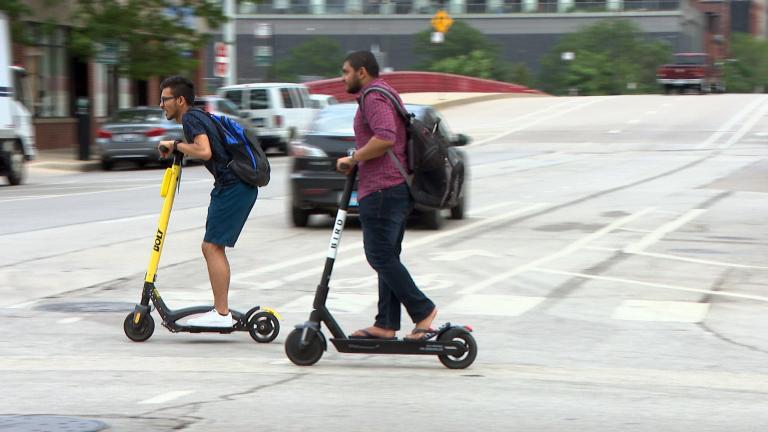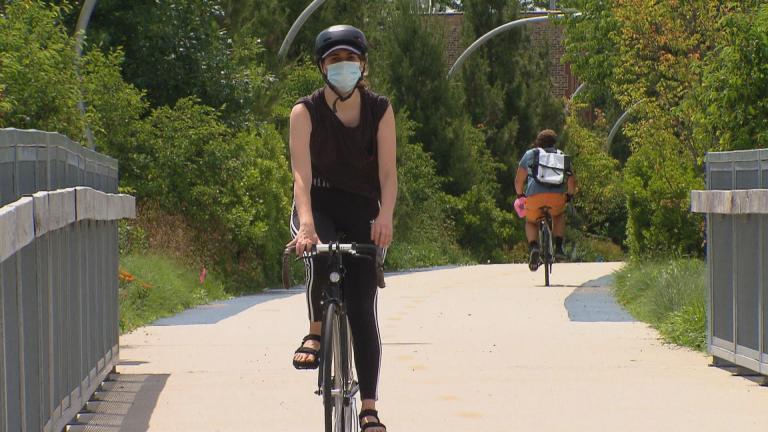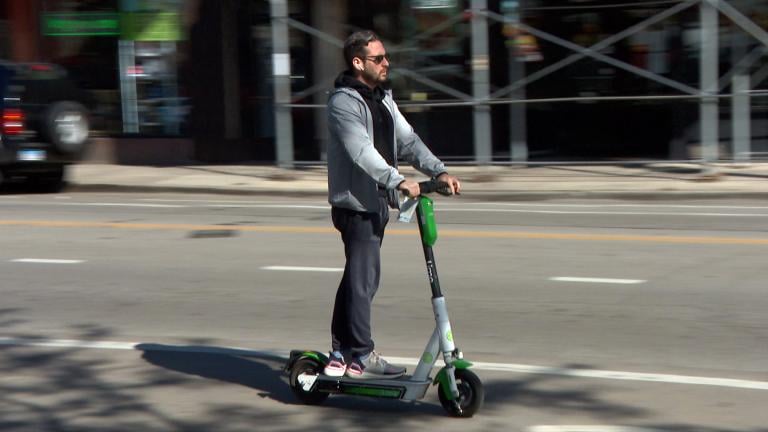The scooters are back — in a big way.
The second round of Chicago’s electric scooter pilot program kicked off Wednesday, following a 2019 program that left city leaders wanting more information.
Last year’s trial run saw more than 800,000 rides during a four-month period with 10 companies participating. This time, it’s just three: Bird, Lime, and Spin. But you’ll see more scooters on Chicago’s streets, and they’ll be allowed across most of the city. The hope is scooters can increase mobility for Chicagoans in parts of town with fewer transportation options, a goal the program fell short of last year.
“What we saw was that (rides) started and ended in the same place, which meant that people just took it for kind of a joyride — and that’s OK too!” said Jacky Grimshaw of the Center for Neighborhood Technology, which helped the city analyze last year’s data. “But (scooters) could also help lower-income Chicagoans and those living in disinvested areas.
Grimshaw says housing and transportation are the two biggest household costs, and that limits people trying to get where they need to go.
“Employment, school, health care, (and) visiting family and friends. When you have limited budget for transportation, it limits your ability to do those things,” he said.
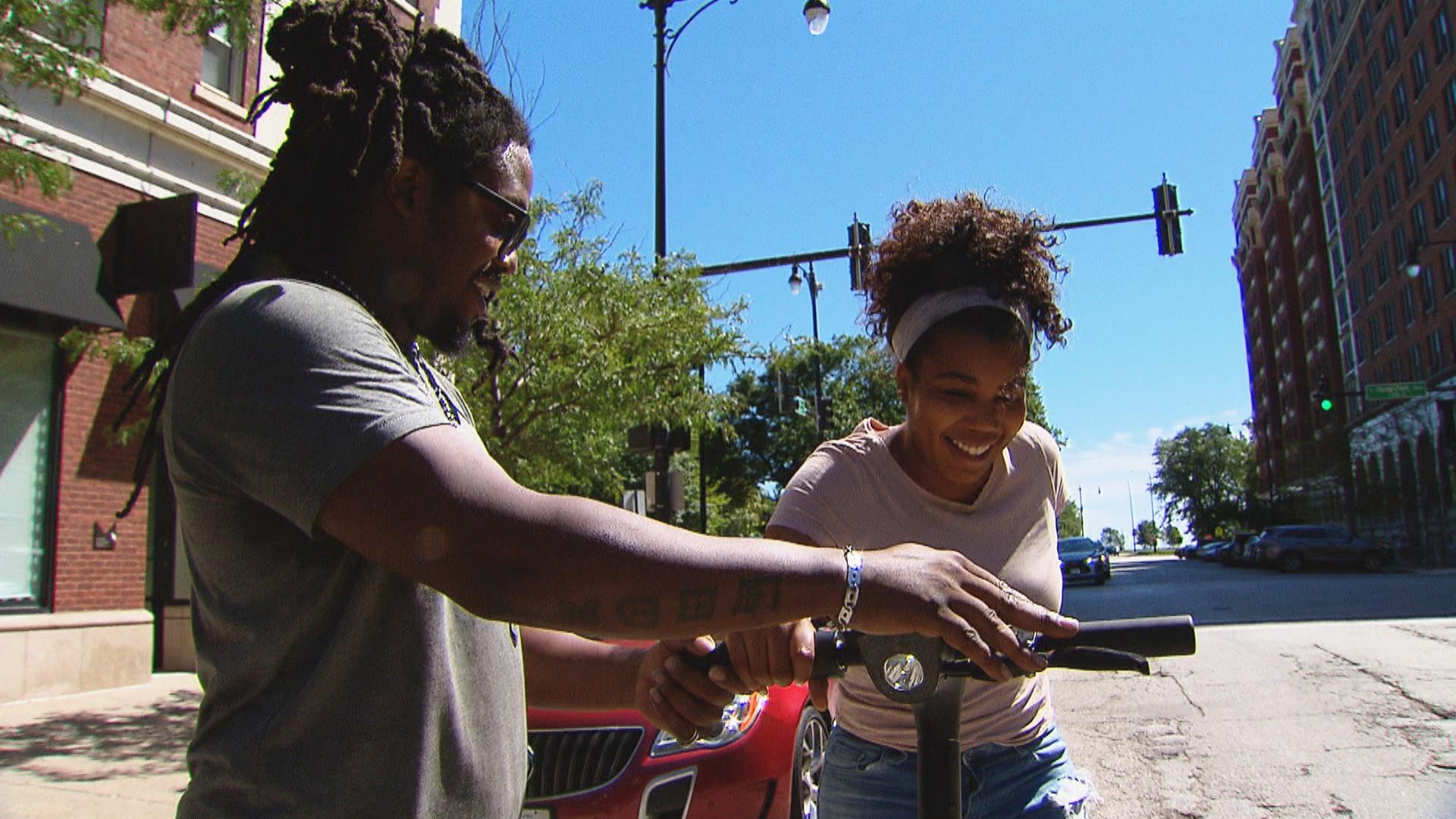 (WTTW News)
(WTTW News)
Equity was a major goal of the program last year, but according to data, the majority of riders were well-off and most of the trips were in areas that already have good transit options. And when it came to rebalancing the fleet of scooters around the city, “some companies did it better than others, so that areas that were most in need of this transportation option did not have the same kind of experience,” Grimshaw said.
Unlike last year's limited pilot area, the whole city is fair game in 2020 with a few exceptions: downtown, the lakefront, the 606 and O’Hare. And this year, there will be 10,000 scooters — four times as many as last year.
At Lime’s warehouse on Tuesday, staffers were prepping for the Wednesday roll-out. Lime’s LeAaron Foley says widely available e-scooters can help Chicagoans rethink how they get around, especially for the first or last mile of their trip.
“Where transit may not be as robust or thorough in some neighborhoods in Chicago, scooters can help fill the gap for people,” Foley said. “If the bus is running 20 minutes in between, a scooter may be a better option to be able to make that connection.”
The city has mandated that half the fleet of electric scooters be located on the South and West sides of the city, and it will check to make sure that’s the case twice a day.
“Our goal is not to just be compliant with the city’s rules on equity, our goal is to surpass the city’s requirements on equity,” Foley said.
Scooter companies are working with community groups and analyzing data to see where there’s demand and need, says Bird’s Maurice Henderson.
“That data in turn helps cities really think through where the next best investments are when they’re trying to build out, for example, their bike network or greenways,” Henderson said.
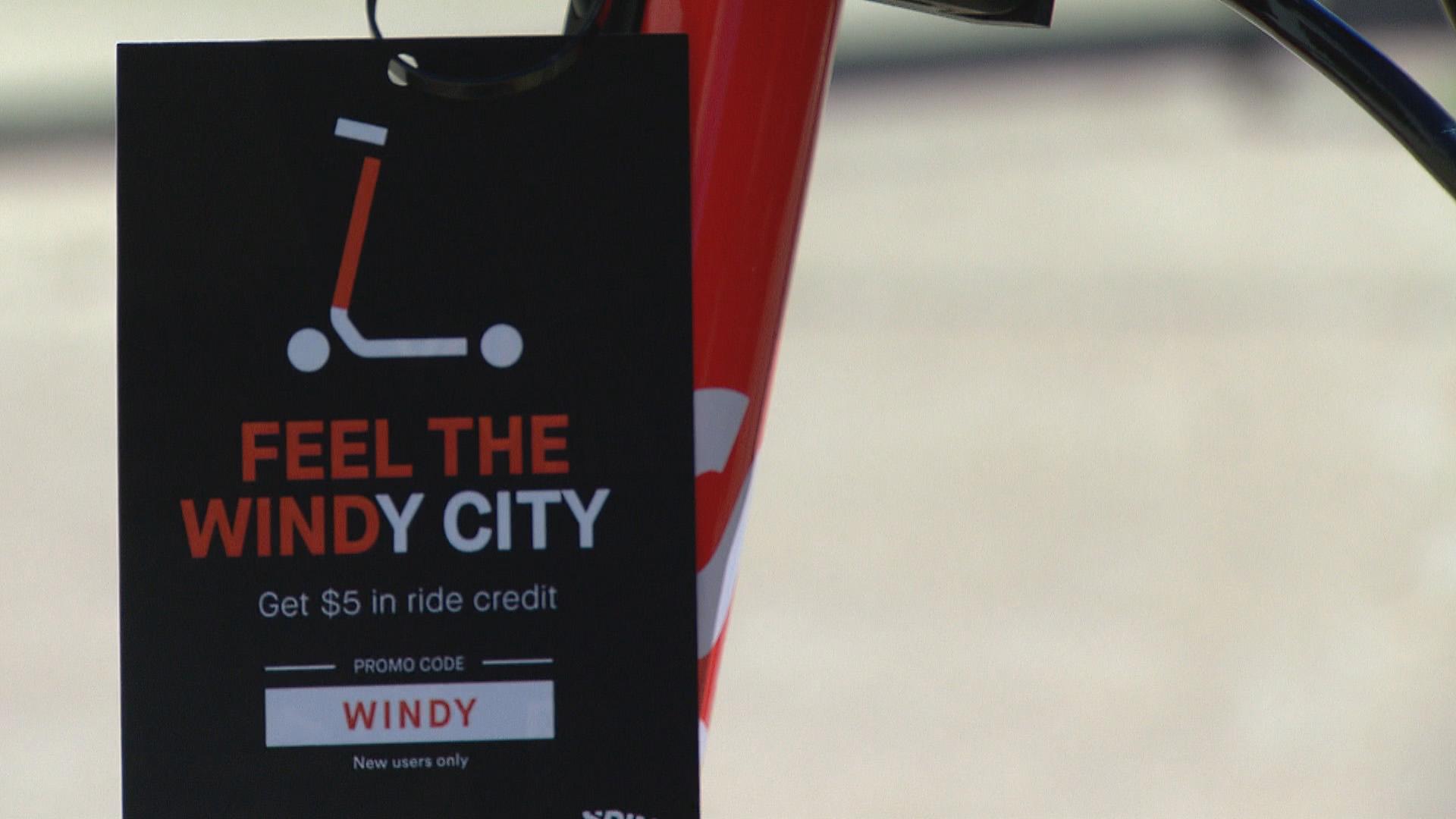 (WTTW News)
(WTTW News)
All three companies offer programs aimed at lower-income Chicagoans, things like discounted rides and “a cash payment option and a text to unlock option for folks who may not have smartphones,” Henderson said, “making sure that people across the economic spectrum, people across the digital divide, have the opportunity to leverage this product and service as well.”
And the companies say they’re bringing in jobs. In a statement, Spin says it’s looking forward to “bringing 60 full-time jobs with benefits to the city. … We have no doubt that Chicagoans across the entire city will reap the environmental, congestion and convenience benefits of scooters.”
Grimshaw says education will be key to making sure Chicagoans reap those benefits.
“Make it more clear to people that they can use scooters, that they don’t have to have smartphones, that they don’t have to have a credit card, and that this is really a transportation option for people who otherwise could not take a trip,” Grimshaw said.
In addition to equity, there’s also the question of whether the scooter pilot will reduce car trips, another goal of the program. And there are safety questions to answer over injuries and COVID-19. The scooters are going to be cleaned every time someone working for one of the companies comes into contact with them.
There’s also a requirement that the scooters be locked to a bike rack or other fixed object when they’re not being used. That was one of the big complaints about them last time, and it was a particular concern for seniors and people with disabilities that scooters strewn across the sidewalk could be a hazard for someone using a wheelchair or someone with limited vision.
KEY DETAILS
— The three companies involved in the new pilot program are Bird, Lime, and Spin. You can find a scooter through their smartphone app. There are also options for those without smartphones: Bird | Lime | Spin
— Each company can offer 3,333 rentable scooters each day between 5 a.m. and 10 p.m.
— The speed limit is 15 miles per hour.
— Scooters will cost $1 to unlock, plus a per-minute charge and taxes and fees. Bird costs 32 cents a minute. Lime costs 19 cents a minute in priority areas and 39 cents a minute elsewhere. Spin costs 39 cents a minute.
— All three companies have a variety of promo deals and discount programs for lower-income residents, and people on assistance programs: Bird | Lime | Spin

